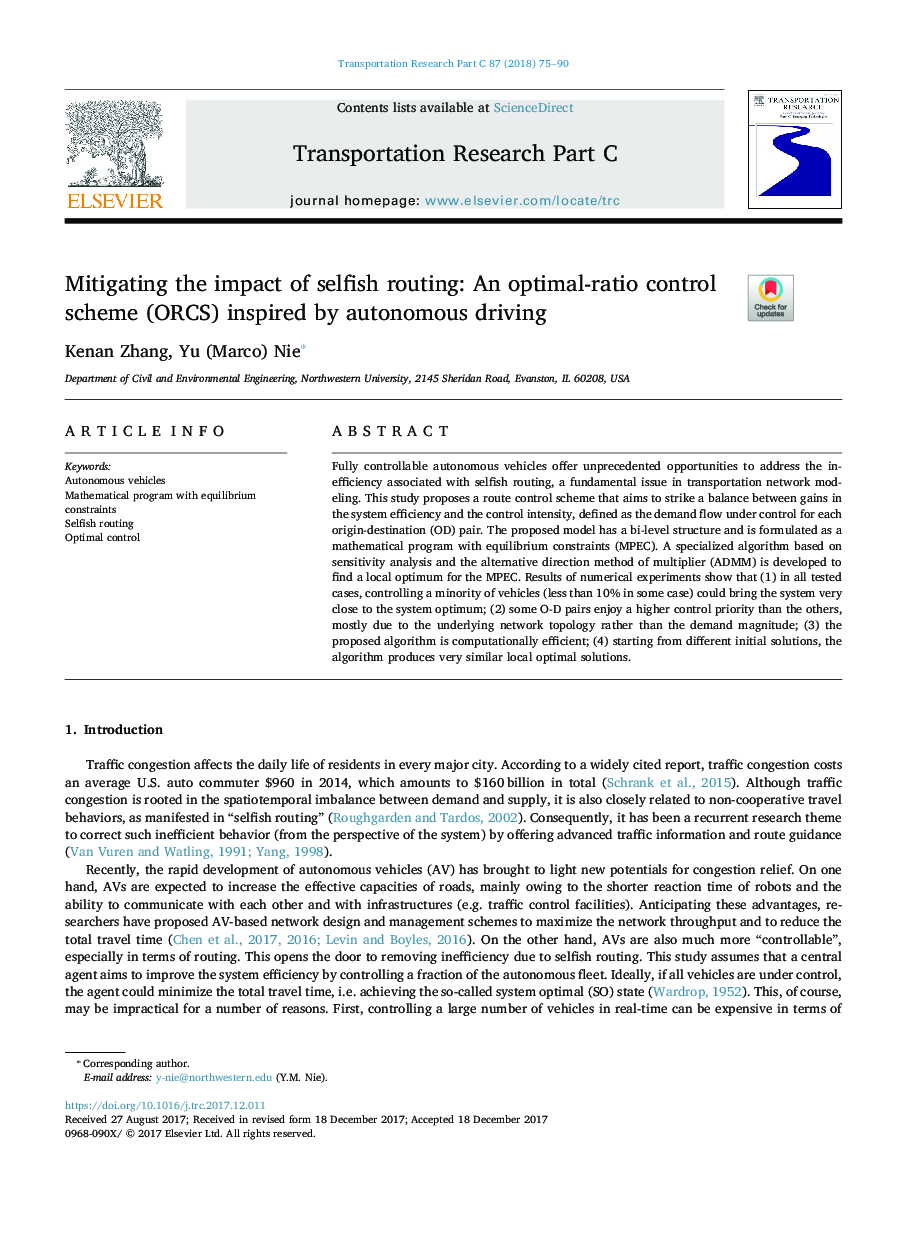| Article ID | Journal | Published Year | Pages | File Type |
|---|---|---|---|---|
| 6936169 | Transportation Research Part C: Emerging Technologies | 2018 | 16 Pages |
Abstract
Fully controllable autonomous vehicles offer unprecedented opportunities to address the inefficiency associated with selfish routing, a fundamental issue in transportation network modeling. This study proposes a route control scheme that aims to strike a balance between gains in the system efficiency and the control intensity, defined as the demand flow under control for each origin-destination (OD) pair. The proposed model has a bi-level structure and is formulated as a mathematical program with equilibrium constraints (MPEC). A specialized algorithm based on sensitivity analysis and the alternative direction method of multiplier (ADMM) is developed to find a local optimum for the MPEC. Results of numerical experiments show that (1) in all tested cases, controlling a minority of vehicles (less than 10% in some case) could bring the system very close to the system optimum; (2) some O-D pairs enjoy a higher control priority than the others, mostly due to the underlying network topology rather than the demand magnitude; (3) the proposed algorithm is computationally efficient; (4) starting from different initial solutions, the algorithm produces very similar local optimal solutions.
Keywords
Related Topics
Physical Sciences and Engineering
Computer Science
Computer Science Applications
Authors
Kenan Zhang, Yu (Marco) Nie,
